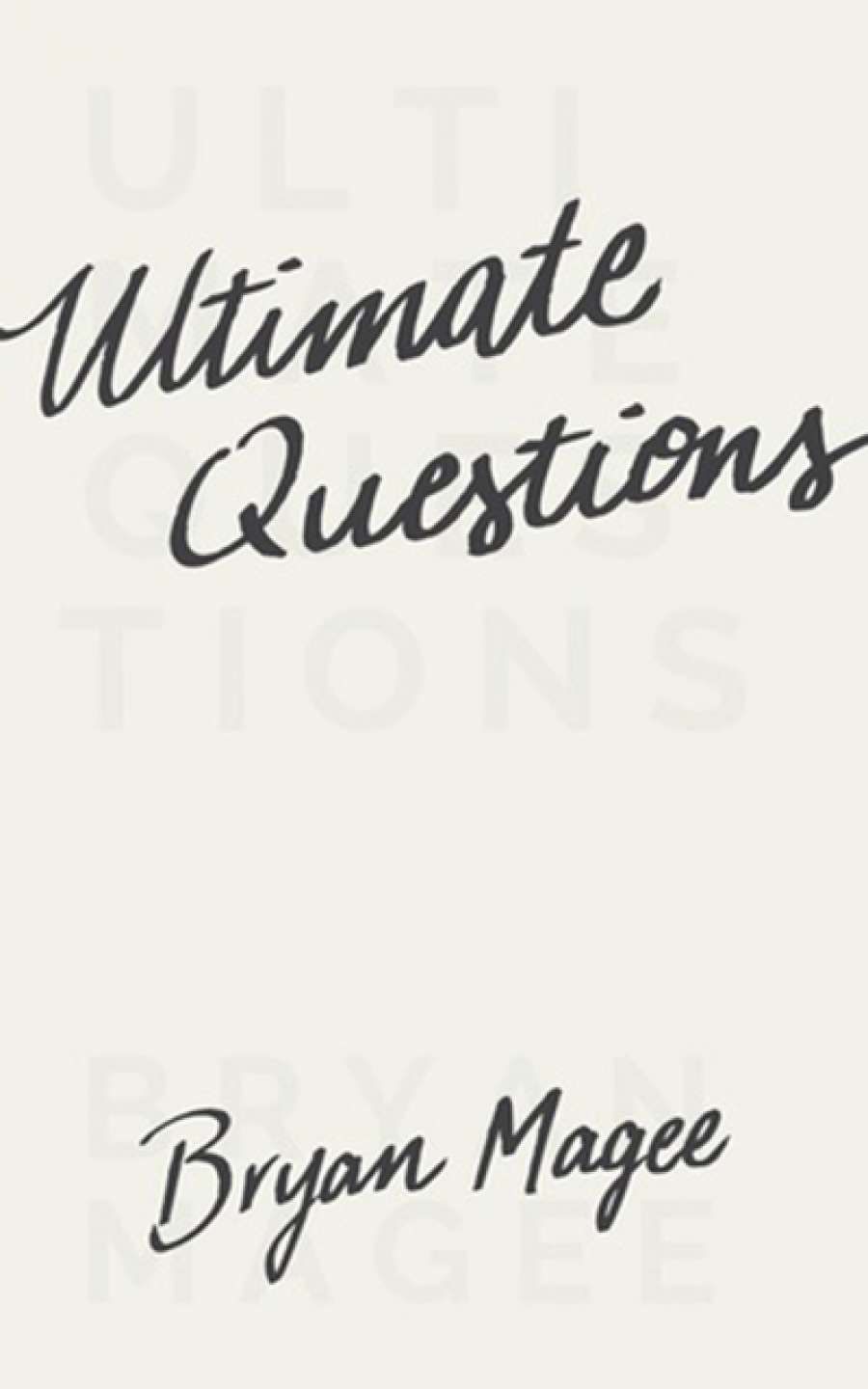
- Free Article: No
- Contents Category: Philosophy
- Custom Article Title: Craig Taylor reviews 'Ultimate Questions' by Brian Magee
- Custom Highlight Text:
This small book is the culmination of a lifetime's thought about some of the deepest and most unfathomable philosophical questions: the limits of our ...
- Book 1 Title: Ultimate Questions
- Book 1 Biblio: Princeton University Press (Footprint) $31.95 hb, 144 pp, 9780691170657
While clearly written and aimed at the general reader, the book is nevertheless a challenging read. Magee reminds us not only that what we know of the world is tiny compared to what we do not know, but also that the particular apparatus we have for apprehending the world, along with our location in time, ensures that 'reality will never be intellectually mastered by humans'; indeed that 'total reality', as he puts it, may be nothing like what we imagine it to be. Crucial to understanding Magee's line of argument is a distinction he makes, drawing on Kant, between our experience of the world, and the world as it is in itself, that which is not in the empirical world but which underlies or transcends it. Indeed, the idea of the transcendental, as just indicated, is central to the argument of this book. For Magee, science alone cannot provide us with much guidance regarding the questions with which he is concerned. Here the influence of the arts, particularly music and drama, on Magee's thought becomes apparent. According to Magee, much of what we do know about morality, ourselves, and our relations to others and the world cannot be put into words and justified. But it is a mistake, he contends, to exclude what is not understood in this sense from what we truly know. Thus, as Magee points out, we can say that Shakespeare's Hamlet is a play of great depth and insight without being able to say precisely why this is. Which is not to deny that we need to subject the insights and intuitions that seem revealed to us here to critical appraisal. But, in the end, 'critical thinking alone ... cannot answer our questions'. Here, though, I found something in the book puzzling, and ultimately unsatisfying.
A strand that runs throughout the book is a strong critique of religion. Noting that value statements, for example about Hamlet, can be true even if they cannot be rationally validated, Magee considers whether, as some may think, this lets 'religion in by the back door', something Magee is clearly at pains to avoid. As he goes on to say, 'In any honest intellectual enquiry there is no place for religion. At best it is distorting, because from the moment it is introduced an assumption of its legitimacy has been made, and something about possible outcomes has been pre-selected or precluded, and the balance of probabilities rigged.'
It is certainly true that religion as understood and practised by some people can be like this, but it seems unfair to suggest that a religious attitude to the world must be like this, and I find it puzzling, given much of what Magee says, that he does not acknowledge this. Magee is happy with talk of the noumenal, with what lies beyond experience and rational validation in that sense, but he is not happy for this to be called 'God'. Why? Because the religious person 'has no grounds for doing so'. Yet Magee also wants to say that 'we ourselves are in some understandable way noumenal'. Challenged as to what in the empirical world convinces him of this, Magee replies '"Everything." The world itself ... brims over with intimations of other realties and other orders of being.' But surely many religious people would say similar things about intimations of God, and the problem of grounding is in both cases the same.
At one point, Magee tells us that his 'first attempts to give expression to [his] deepest apprehensions of life arose ... in the writing of poetry'; he cites a segment of a poem written when he was eighteen. With the exception of the mention of our 'immortal souls', the segment does not deploy any specific religious ideas or concepts. But if it did, as so many poems and other creative works have done, does that mean it cannot be true in the broad sense that Magee allows, but only a display of intellectual dishonesty? While Magee suggests in this context that 'insights and intuitions' may be legitimately driven forward by 'intense concentrations of feeling', he does not adequately explain why we must exclude from this intense religious feeling and experiences.
Despite that qualification, I recommend this book to the general reader.


Comments powered by CComment